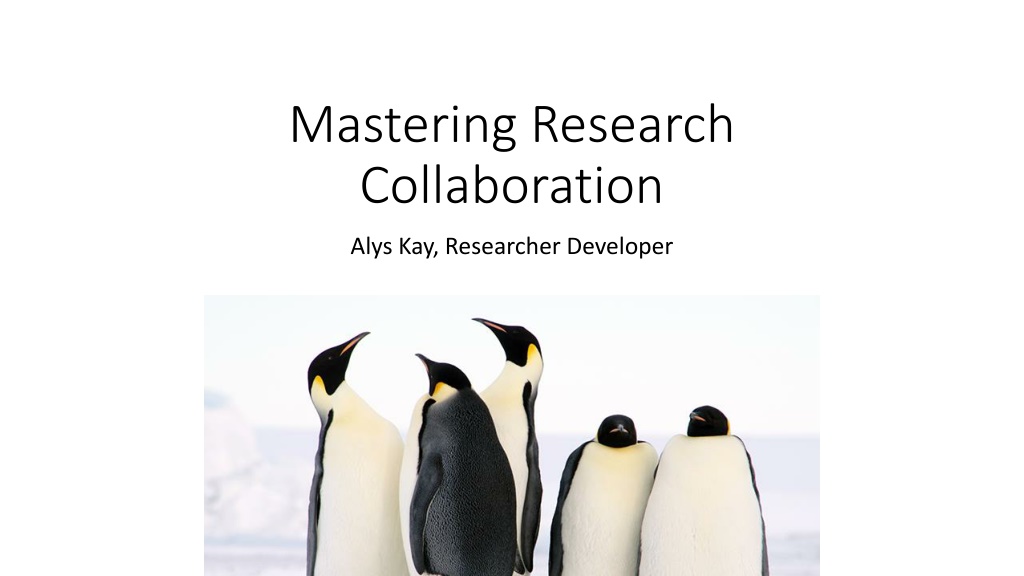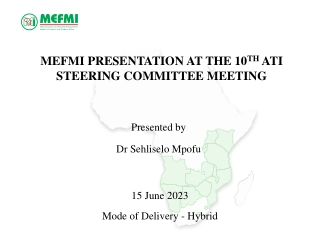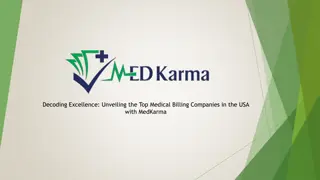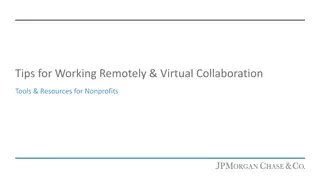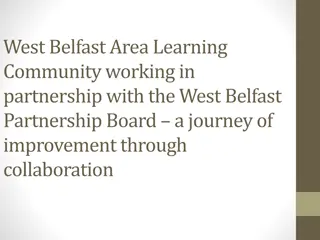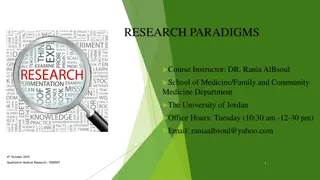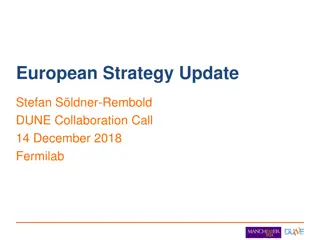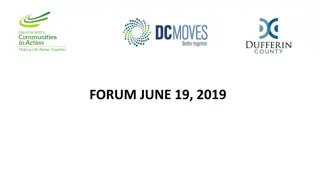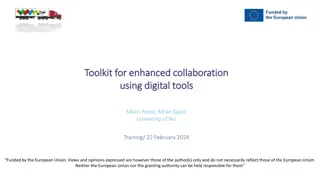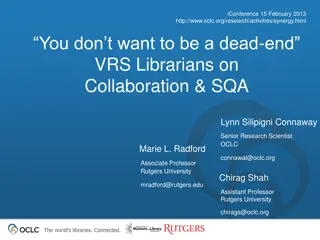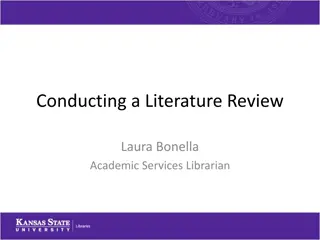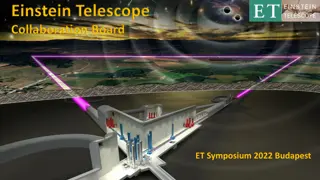Mastering Research Collaboration
Dive into the advantages of collaborating in research, from career progression to increased citations. Explore the challenges faced and learn how to find the right collaborators for successful partnerships. Discover the true value of collaboration beyond just speeding up research.
Download Presentation

Please find below an Image/Link to download the presentation.
The content on the website is provided AS IS for your information and personal use only. It may not be sold, licensed, or shared on other websites without obtaining consent from the author.If you encounter any issues during the download, it is possible that the publisher has removed the file from their server.
You are allowed to download the files provided on this website for personal or commercial use, subject to the condition that they are used lawfully. All files are the property of their respective owners.
The content on the website is provided AS IS for your information and personal use only. It may not be sold, licensed, or shared on other websites without obtaining consent from the author.
E N D
Presentation Transcript
Mastering Research Collaboration Alys Kay, Researcher Developer
To contribute to the Benefits of Collaboration Benefits of Collaboration survey go to https://www.qualtrics.manchest er.ac.uk/jfe/form/SV_0NcwxW7I UGt4Ssm
Collaboration Brings Career Advantages Key to Female Career Progression - 2021 - Both men and women more likely to become research leaders, - Scholars frequently publish with same co-authors linked to shortened career. https://royalsocietypublishing.org/doi/10.1098/rspb.2021.0219
Working Collaboratively Increases Citation More co-authors - more citation Diversity of co-authors - higher h-index for citations Co-authorship rates have increased dramatically in the last 50 years (in some fields) 1. Larivi re, V., Gingras, Y., Sugimoto, C. R. & Tsou, A. Team size matters: collaboration and scientific impact since 1900. J. Assoc. Inf. Sci. Technol. 66, 1323 32 (2015). 2. Parish, A. J., Boyack, K. W. & Ioannidis, J. P. A. Dynamics of co-authorship and productivity across different fields of scientific research. PLOS ONE 13 (2018). https://f1000research.com/articles/11-95
Activity: Challenges of Collaboration Read the scenario about a researcher who was invited to join a research collaboration. Consider what risks and challenges they might face. This is an example from the field of psychology, but the risks and challenges of collaborating could apply to any discipline. Padlet Activity: https://padlet.com/alyskay/r6mowxd8cfdsa9k3
Challenges Impaired communication Misappropriation of your ideas, knowledge or IP More administrative work A lack of institutional or national financial support Agreeing how to share credit fairly Ensuring that all members of the collaboration, especially early career researchers, are credited fairly.
In Summary: Collaboration doesn t always speed up research The least tangible benefits can be the most rewarding
Important Characteristics: Research Qualities Someone with expertise, skills or resource who understands and shares the projects goals. Professional Qualities Someone who is flexible, reliable, committed to the project and has high ethical standards. Social Qualities Someone who is respectful, honest, direct, reasonable, good at communicating, and manages conflict well. Personal Qualities Someone who is personable, open-minded, genuine, emotionally intelligent and empathetic.
Look Beyond Your Own Networks Identify central individuals in a wider network Reach out to visiting academics and to your mentor s contacts Look at journals and other publications Consider peripheral research Identify regional experts Follow the money identify contacts funded with previous grants Attend innovation bootcamps Consider your competitors
Finding Industry Collaborators Identify Research that is tangential - - - Working through conferences Asking your own academic network Literature review: who is publishing from industry perspective Contact them (or Academic Liaison, Partnership manager) for brief conversation, identify if mutual benefit. Let relevant Uni departments know what sort of collaboration you are seeking (knowledge exchange, business engagement, knowledge transfer partnerships, commercialisation) -
Dividing the Work: RACI Chart Main Task Sub-task PI Postdoc Lab tech Stats Experiment 1 Bench work R R A I Data analysis A R C I R = Responsible (for completing the task) A = Accountable (for ensuring that the task is completed correctly) C = Consulted (in discussions about that task) I = Informed (about progress, setbacks, and challenges)
Project Gantt Chart June July Aug Sept Oct Nov Dec Plan experiment Do experiment Acquire the data Analyse the data Key Project 1 Project 1 Milestone
Managing Your Own Time Top tips: - Budget your Time (always have purpose: 40% collab, 60% my res) - Buffers (contingency) - Boundaries (establish and ruthlessly defend) - Bits (maintain a list of tasks that can be done in 10 20 mins) Useful Time Management Tools: - Toggl - Trello
Communicating Effectively Situation 1: Henry and Maria, two early career bio-informatics researchers, from different institutions, are planning an ambitious collaboration in clinical machine learning. At the start of the project they clearly defined tasks and set milestones. However, Henry has not been keeping to the agreed timeline and Maria is worried they will not meet key deadlines. Every time Maria asks Henry about progress, emails are ignored. Henry feels bad about the situation and is overwhelmed by work. He feels embarrassed to admit that he is behind. What should he do?
Communicating Effectively Situation 2: Maria and Henry have a video call and try to resolve the situation. Henry apologises, explains how far behind he is and suggests a realistic new deadline. How should Maria respond?
Communicating Effectively Top Tips: - Keep in touch, regular progress update, share new results - Be responsive, try to give timely response, if not explain why - Don t overland collaborators, try not to pester - Communicate delays, as soon as possible - Attend meetings, being present is important to maintain trust - Respect difference, face-to-face can help build stronger relationships
Improving Online Collaboration Challenges - More difficult to have certain kinds of conversation - Fewer chances for spontaneous contact and discussion - Mismatches of technology and purpose Solutions - Establish a clear process for how things get done - Pick the best tools for your goals - Be flexible about availability and think about coverage
Reflections and Actions In small groups spend a few moments discussing Mastering Research Collaboration. What are the 2-3 things that you personally will take away from this workshop?
